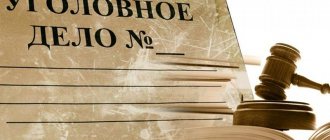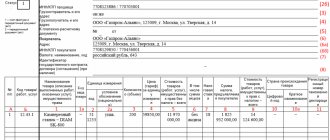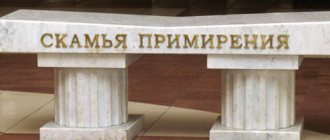Impressive funds and forces are allocated to the crime prevention system in our country, but more than one and a half million criminal cases are initiated in Russia every year. However, a significant part of them remains unsolved for a long time. The latter circumstance leads to overload of the bodies of inquiry and investigation.
However, in relation to such cases, the resolution of which is impossible within the period established by procedural legislation, the suspension of the criminal case is provided. What it is, how and in what time frame it is carried out will be discussed in the article below.
When is suspension possible under the Code of Criminal Procedure of the Russian Federation?
The procedure for investigating a criminal case is strictly regulated. There are certain stages, the presence of which is mandatory.
Thus, the beginning of a criminal investigation is called its initiation. From this moment the preliminary investigation begins. Sometimes it is called pre-trial. At this stage, the task of the investigation is to identify suspects, collect the necessary evidence, and prepare for filing charges.
Free legal consultation
+8 800 100-61-94
In accordance with the norms of the Code of Criminal Procedure of the Russian Federation, preliminary investigation is carried out in two forms:
- Inquiry . An inquiry involves a somewhat simplified procedure for investigative actions. It is carried out only when investigating crimes of minor gravity. A complete list of relevant criminal offenses is contained in Art. 150 Code of Criminal Procedure of the Russian Federation.
- Preliminary investigation. It is the main form of investigation of criminal cases. Carried out in strict accordance with the norms and procedures provided for by current legislation. A preliminary investigation is carried out in the investigation of grave and especially grave crimes, as well as criminal acts of moderate gravity in the presence of certain circumstances.
The current law establishes that the pre-trial investigation must be carried out within a certain time frame. They are provided for by the Code of Criminal Procedure of the Russian Federation. After their expiration, the criminal case must be terminated or the suspect is assigned the status of an accused, and the materials collected by the investigation are sent to the court.
Thus, the inquiry must be carried out within 30 days. The investigation is completed within 2 months. In this case, the countdown begins from the moment the criminal case is initiated.
Attention! In some cases, with the consent of the prosecutor, these deadlines may be extended if there are valid justifications.
However, due to objective reasons, sometimes the investigation cannot be completed within the time frame established by law. In this case, a decision may be made to suspend the criminal case.
In practice, suspension means that within the framework of an existing criminal case, all investigative actions as such are stopped. In addition, the period during which the case must be considered is “frozen” for a certain period.
It is important to distinguish suspension from termination of a criminal case.
When suspended, the criminal prosecution essentially continues, and if the circumstances interfering with the investigation no longer exist, the procedural actions will continue. Upon termination, the criminal prosecution of the person ends, as a rule, without any negative consequences for him.
What other nuances need to be taken into account?
Each investigator has specific obligations under the procedure:
- Obtaining information by the parties regarding what decisions have been made.
- Explanations regarding the deadline for appealing.
- A warning about the consequences that gives citizens the opportunity to rehabilitate themselves.
When one person is found not guilty, this does not mean that the investigation stops completely. The inquiry still continues its work, because the process must have a logical conclusion. We need to look for other evidence and criminals that may be connected to what is happening.
Reasons
Suspension of a criminal case is an important procedural procedure. It is strictly regulated, and the grounds for carrying out this action are specified in the Code of Criminal Procedure in a closed list. Let's look at it in more detail below.
At the investigation stage
The list of relevant grounds is contained in Article 208 of the Code of Criminal Procedure of the Russian Federation.
Unidentified person
In most cases, establishing the identity of a citizen who has committed a criminal act requires certain actions and time. Thus, the task of law enforcement agencies is to search for the culprit and carry out checks for possible involvement in the commission of a crime.
In many cases, a “hot pursuit” search brings results. However, in some situations, in order to establish the circle of suspects, criminological examinations and other operational investigative measures are required. And even in this case, the person involved cannot always be identified. If the investigation period comes to an end, the person conducting the investigation decides to suspend it . Often, in the professional jargon of law enforcement officers, such cases are called “hangings.”
The suspect fled
In some cases, it is not difficult to establish a person’s involvement in committing a criminal offense, but it is not possible to establish his whereabouts. In this case, the case is suspended and the citizen is put on the wanted list.
If there are no search results for the suspect, the investigative authorities initiate a search case, and the person is put on the local wanted list. If the location of the suspect is not established within 3 months, then the person is put on the federal wanted list.
In cases where, after committing a crime, the person involved is detained, the investigative authorities make a decision on choosing a preventive measure for him. If there are compelling reasons that the suspect will be able to escape from the investigation and trial, then he may be placed in a pre-trial detention center.
Also, persons who were previously wanted or who violated the conditions of their stay under milder forms of preventive measures are placed in pre-trial detention centers.
The person cannot be involved in investigative actions
In this case, the investigation knows where the suspect is, but there is no objective possibility of his participation in the investigative actions. For example, this may be due to the fact that the person is located outside the Russian Federation.
Serious illness of the suspect
If a person involved in a criminal case, in accordance with the conclusion of medical specialists, cannot take part in investigative actions due to a serious illness, then until his recovery, the case may also be suspended.
During the trial
After charges are filed, the case is sent to court, where it is considered on its merits. As a rule, this does not happen all at once. Thus, the court needs time to prepare for the trial. In addition, certain categories of cases may be considered at several meetings.
However, there are certain grounds according to which the process can be suspended.
A list of them is contained in Article 238 of the Code of Criminal Procedure of the Russian Federation and in most of its points they coincide with those for which the case is suspended at the investigation stage:
- the accused fled;
- it is impossible to involve the accused in the process due to objective reasons;
- serious illness of the accused.
In addition, suspension of the process is allowed when applying to the Constitutional Court (on behalf of the judge or the accused) on the issue of the possibility of applying a particular rule of law in the framework of the investigation of a given criminal case.
Termination of an ongoing criminal case
The production of such cases is always subject to certain algorithms. The investigator and the prosecutor cannot commit actions that are contrary to the general order. Cases are terminated according to the following procedural procedure:
- Organize an investigation to identify reasons to stop the harassment.
For procedural persons, compliance with current legislative norms is mandatory. Attention is paid to all Codes associated with the case. Even before the proceedings begin, it is necessary to see the reason for termination.
- Using evidence to confirm identified circumstances.
The defense is receiving relevant materials to support the investigation.
- Make the final decision.
The judge is involved in the process if necessary. The supervisory function is performed by the prosecutor, who is always involved in the process.
The parties to the process act in such a way that the case reaches one of the results. Thanks to modern methods, it is easier to avoid the following consequences:
- The pursuit.
- Punishment, although all conditions are met.
Representatives of law enforcement agencies carry out the most intensive work with the evidence base. They are familiar with the classification of grounds on which criminal cases are terminated. The main thing is to take into account as many circumstances related to the case as possible.
The institution of supervision was specifically created to prevent abuse of power. Any decision made by the investigator is sent to the prosecutor's office within 24 hours.
How does the production stop procedure work?
The procedure for suspending a criminal case is regulated by procedural legislation.
Thus, at the stage of preliminary investigation, the investigator makes the appropriate decision. He issues a ruling on this. The document must be sent to the prosecutor. It is after the prosecutor's sanction that the case is considered suspended.
Important! If several persons appear as suspects in a criminal case, then the decision to suspend is made only in relation to those of them in respect of whom it is impossible to carry out investigative actions. Accordingly, the investigator retains the right to separate the case against them into separate proceedings.
The decision to suspend at the trial stage is made by the judge alone.
In cases where the case is suspended due to the fact that the defendant has disappeared, the judge sends the case materials to the prosecutor for the latter to decide on the search. In addition, if the defendant was previously at large, the judge chooses a preventive measure in the form of keeping the escaped person in a pre-trial detention center. This means that immediately after being caught, he will be placed in isolation, where he will await trial.
When you are released from criminal liability without closing the case
Over time, the first offense is increasingly accepted by the law as a mitigating circumstance. The same applies to persons who have committed a crime but truly repent. This means that there is a willingness to compensate the damage to the state and those who suffered as a result of criminal actions.
Exemption from prosecution in a criminal case is permitted under certain conditions. An example is amnesty, the presence of active repentance.
Active repentance involves not only admitting one’s guilt, but also other actions - helping the investigation.
For example, we can take a driver who carelessly hit a pedestrian. After this, the guilt and punishment are mitigated if the following actions are taken:
- Compensation for all damage caused.
- Assistance in the investigation at all stages.
- Gathering information related to witnesses to the incident.
- Timely call of the police and ambulance.
- Providing first aid to the victim.
If a particular person is proven innocent of a crime, the criminal case is not closed, but the search for the real perpetrator continues.
Is it possible to reopen the investigation?
If the circumstances that led to the suspension no longer exist, the criminal case is resumed. It should be noted that in this case there is again no need to initiate it, since suspension does not mean termination. After completion of all investigative actions, the materials are transferred to the court or the criminal prosecution is terminated for one reason or another.
Based on the results of the trial, the defendant may be acquitted or a guilty verdict may be passed against him. After the relevant court verdict enters into force, the criminal prosecution of the person is considered completed.
Progress of the investigation
There are times when the investigation no longer has grounds for such a suspension or it is planned to organize events in which the personal presence of the criminal is not necessary. Thus, the course of the case is resumed by a decree on the resumption of proceedings in the case.
Important! The investigator is obliged to notify all participants about the procedure for reopening the case: the suspect, the accused and his human rights defender, the victim and his legal representative, the civil plaintiff and defendant or their representatives and, most importantly, the prosecutor.
You can learn more about the stages of criminal proceedings and the steps of the investigator from the video at the link:
Example of business progress recovery
In Yekaterinburg, an ATM was robbed with the theft of a large sum of money in the amount of 1,000,000 rubles. A criminal case was opened on this fact, and the identity of the criminal was established, but the citizen of the Russian Federation V.P. Kirichenko was involved. failed. He was in Poland, but after 2 years he decided to return to his homeland. The case against him was suspended, and, knowing this, he crossed the Russian border. There he was detained by border guards and handed over to investigators. Based on this, investigator Ermolenko I.A. issued a resolution to reopen the case.
The criminal’s guilt was proven, and the case was transferred to the court, which passed a sentence of imprisonment for V.P. Kirichenko. for a period of 7 years for theft of funds on an especially large scale and hiding from investigation.
Is it subject to rehabilitation?
The above-mentioned grounds for suspending a criminal case should also be distinguished from the reasons for its termination.
The latter can be divided into non-rehabilitative and non-rehabilitative.
The second group includes those that provide restoration of rights; the person will be able to demand compensation, i.e. the person is, as it were, justified by virtue of innocence.
Rehabilitative grounds:
- no crime event;
- no composition available;
- there is no statement from the victim, if necessary;
- non-involvement;
- the presence of a corresponding sentence for the same crime against the same person, a termination order, etc.;
- a document has not been received from the court on the presence of signs of a crime in the actions of special categories of persons/lack of consent of the Federation Council, State Duma, Constitutional Court, qualified. collegium of judges, respectively, to initiate a criminal case or bring him in as an accused.
Non-rehabilitative grounds are presented in the following list:
- death;
- active repentance (if a crime of minor or moderate gravity is committed for the first time);
- reconciliation with the victim and compensation for harm (categories of crimes similar to the previous paragraph);
- act of amnesty;
- expiration of the statute of limitations, etc.
For the last two grounds, termination requires the consent of the suspect or accused.
The second basis in the form of repentance should not consist only of turning oneself in, the criminal must actively assist the investigation in solving it, making amends for the harm; legal scholars believe that he must internally condemn himself for his act.
Due to the achievement of peace between the parties, the case can be terminated only upon the application of the victim. The investigator closes the case with the consent of his supervisor, the investigator - with the permission of the prosecutor.
State protection of security measures
As a result of studying the criminal case, a decision may be made to apply government security measures. To do this, the investigator, with the approval of the head of the investigative body, suspends the preliminary investigation and announces a decision on the subsequent organization of measures or their cancellation when there is no longer any reason to apply them, relying on information received from the security measures authorities, at the request of the security measures authority or upon a written statement from persons. Such a decision is sent to the security measures authority and communicated to the person against whom the decision was made.
Seizure of property
In criminal proceedings, the property of the offender may be seized. Keep in mind that it is before the investigation is stopped that the investigator must find out the reasons that such property was acquired by criminal means or intended for use for illegal purposes. This may include the financing of terrorism and the preparation of terrorist attacks by an organized crime group. The investigation has the right to change the ownership of such property or remove the seizure from it.
When there are compelling reasons to seize the property of criminals and other financially responsible persons, the investigator files a specific petition before the court.









